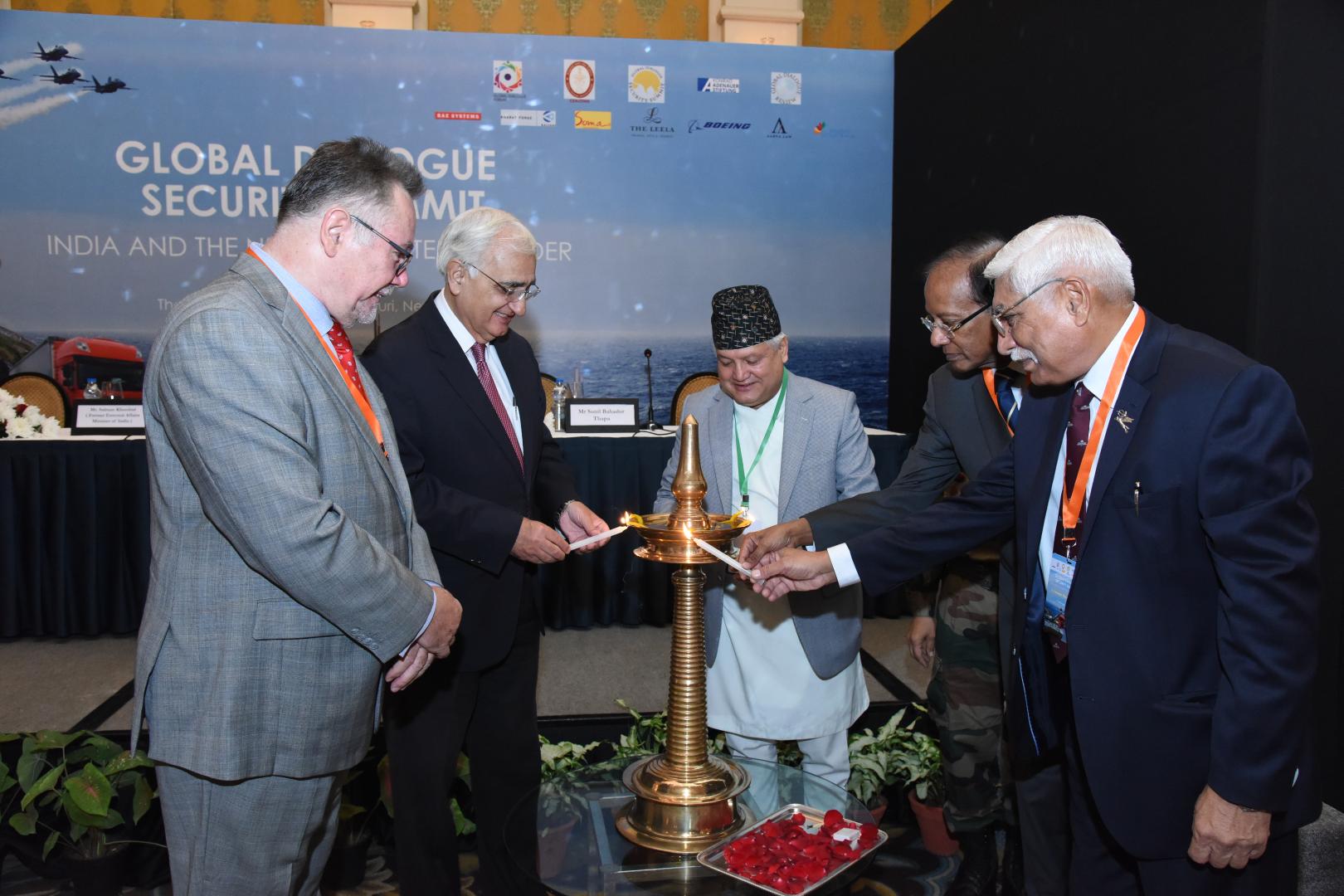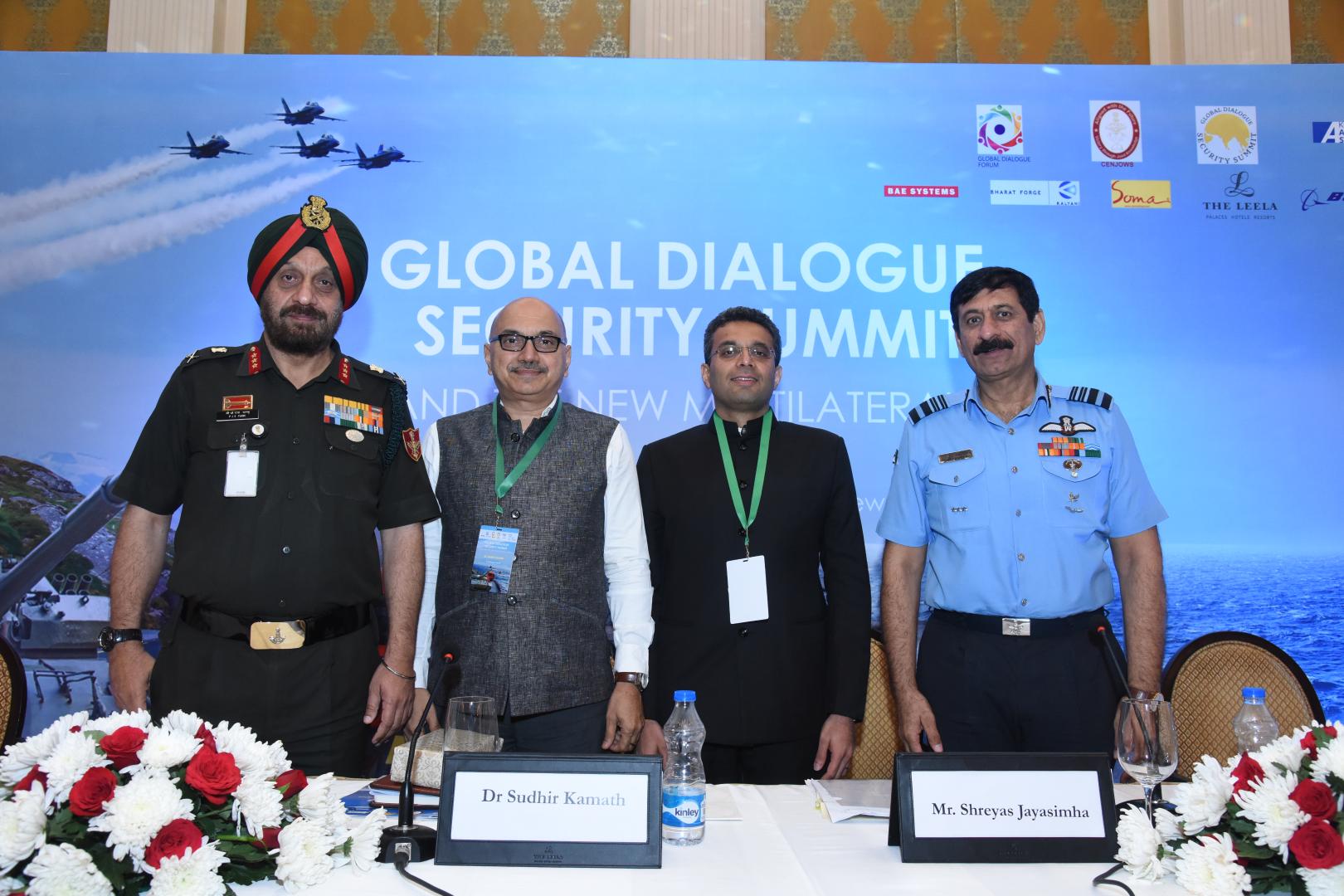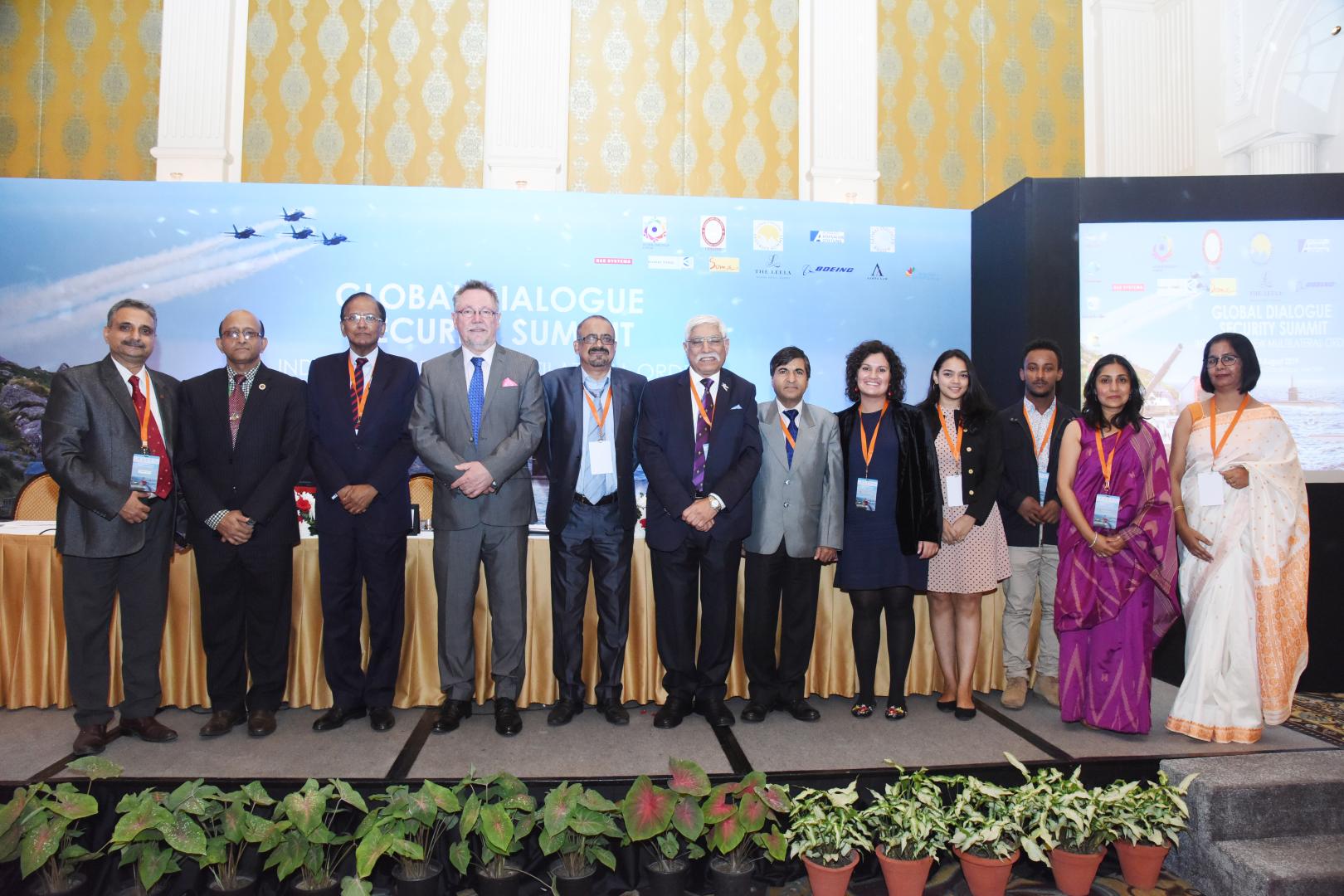Rapid growth and influence of China and the emergence of India as an economic power has led to a shift in focus from the West to the East. Therefore, the prospects and dimensions of the “New World Order” were discussed and their impact on developments in different areas, including security, economy and technology analyzed. The two days involved discussions around various multilateral architectures such as the “Indo-Pacific”, “Eurasia” and the “Bay of Bengal Initiative for Multi-Sectoral Technical and Economic Cooperation" (BIMSTEC) as well as India’s engagement with the United Nations (UN), World Trade Organization (WTO) and other multilateral bodies. Discussions were not limited to current geopolitical ties and strategies but also included the potential and future of cyber, space and artificial intelligence (AI) in India.
The conference began with an introductory speech of the chairman of Global Dialogue Review, Mr. Moses Manoharan. It was described how the current global arena was marked by nation-first approaches, hybrid wars, terrorism as well as cyber and social media dynamics. Lt. General P.S. Rajeshwar presented the security overview which discussed the history and the present ground situation in India and its defense relations with its immediate and extended neighborhood which set the tone for the summit over the next two days. The inauguration had two distinguished Keynote speakers, the Former Minister of External Affairs of India, Mr. Salman Khurshid and the Hon’ble Minister of Industry of Nepal, Mr. Sunil Bahadur Thapa. Mr. Thapa emphasized the importance of BIMSTEC for India and its neighborhood and expressed that “multilateralism is the new mantra” for a “New World Order”. India would need to back its words with actions to promote its key role in the region. Moreover, BIMSTEC would become an absolute necessity to tackle common security challenges of the region and achieve economic growth through a multilateral approach.
Mr. Peter Rimmele, the KAS India Resident Representative delivered the Vote of Thanks and in his speech highlighted the ever-more instrumental global role India could play in promoting multilateralism in the near future. He further said that “being a founding member and playing a prominent role in multilateral organizations such as SAARC, BIMSTEC, BRICS, IORA and Quad, it is evident that India has already begun embodying multilateralism for some time now”.
The first session titled “Competing, Collaborating: India’s Challenges in multilateral Security Engagements” was chaired by Mr. P.S. Raghavan, the Convenor of the Indian National Security Advisory Board. The panelists for the session were Lt. General P. J.S Pannu, Dr. Tasneem Meenai and Former Indian Foreign Secretary, Mr. Kanwal Sibal. Special emphasis in the session was on India’s increasing economic and political importance, strategic partnerships and military cooperation with the great powers. Dr. Meenai discussed the necessity for India to align the peacekeeping operations with its own national strategic interests given the fact that India already is one of the leading nations in offering troop personnel to the UN. The importance of India as a global power engaging in more security-related multilateral engagements has only been increasing considering the rapid growth of China and its influence.
“Many Roads Lead to an Inclusive Vision, Bridging Nations in Peace and Prosperity" was the agenda for the second session which was chaired by Vice Admiral Shekhar Sinha. The underlying fact for the discussion was the lack of connectivity and economic integration amongst South Asian countries. The distinguished speakers of the panel were Mr. Sunil Thapa, Dr. Varaprasad S. Dolla and Brig. General A.K.M. Iqbal Azim. Speakers highlighted the principal role of India as a leader for the region at a time when interdependence and connectivity would be key to mutual growth. The various setbacks that India faces such as the rapid growth of China, both from the economic and defense aspects calls for concern and need for Indian leadership to have a long term vision to tackle these issues. While China may have the economic freedom, India has the political freedom and requires to use it for its own advantage as stated by Dr. Dolla.
The third session was titled “The Lure of Eurasia - Reviving Old World Civilisational Ties between Asia and Europe” and discussed cooperation and confrontation between the great powers Russia and China amongst other issues. The chair for the session was Brig. Rajeev Bhutani, the panelists included Dr. Indrani Talukdar, Maj. General B.K. Sharma and Ambassador Skand Ranjan Tayal. Dr. Talukdar mentioned that during the Shanghai Cooperation Organization Summit, the strategic ties between Russia and China seemed strong, however Russia would not like Chinese influence in its backyard, i.e. Central Asia. As Nicholas John Spykman had already elaborated: “[Those] who control the rimland rule Eurasia, [those] who rule Eurasia control the destinies of the world”. Eurasia is the largest area comprising 65% of the world's landmass. Many see its integration as the only way to reduce American dominance.
The fourth session’s agenda was “Future Wars: In Cyber, Air, Sea, Land and Space, AI-led Technologies will Shape War and Peace” which was chaired by Lt. General P.J.S Pannu. The session revolved around artificial intelligence and its incorporation into defense technologies and its implications. With cyber warfare and cyber space being utilized actively by many state and non-state actors, the significance of AI was emphasized by the panelists. Dr. Sudhir Kamath, Air Marshal Rajeev Sachdeva and Mr. Shreyas Jayasimha were the panelists for this session. The hypothesis was that war systems would be rapidly moving from analogue to digital platforms. This, being a new area of expertise and with a lot to discover, remains an area which is highly unpredictable at the moment and would require extreme caution and farsightedness on India’s part. India needs to keep up with the times along with ensuring that the technologies used are catering to its defense and security needs. As Air Marshal Sachdeva mentioned “the soldiers of tomorrow will wear many IP addresses” and it is pivotal for India as a key global actor to adapt and encourage the inclusion of such technologies especially in the age of the “New World Order”.
The fifth session of the summit “Promoting Neighborhood First in an Indo Pacific Structure, Embracing Commercial & Military Objectives” was chaired by Ambassador A.R. Ghanashyam. According to the panel which had Vice Admiral M.S. Pawar, Mr. Haryo Rahmadi, Lt. General Ata Syed Hasnain, Ambassador Meera Shankar and Rear Admiral Eileen Laubacher on it, there would be a deep interconnection between the states in the Indo-Pacific. These ties could only be promoted more through trust and respect amongst the South Asian nations. The session also highlighted the importance for India to focus on its maritime strategy in order to emerge as a leader within the region. According to the speakers, India should focus on strengthening relations with both immediate and extended neighbors as security and economic concerns in these states would have direct and indirect consequences for India as well. The Indo-US relationship was mentioned and herewith the 2+2 talks in 2018, where the COMCASA agreement was agreed upon and the status of India as Major Defense Partner was underlined. This process was described as response to China’s increasingly aggressive approach through its Belt and Road Initiative (BRI).
The final session for the summit “Reviewing the Results of Make in India, Assessing its Future” was chaired by Dr. Vijay Kumar Saraswat who was accompanied by the panelists, Mr. Amitabh Bhagat, Lt. General Subrata Saha, Mr. Vikram Mahajan and Mr. Michael Koch. The discussion was focused on “Make in India” and the defense sector. Starting point of the debate were India’s large imports of defense equipment. More offset deals were discussed as potential solutions to curb challenges being faced by the defense industry. Furthermore, more predictability in the defense demand and spending would help in confidence-building and attract defense firms to invest further while expanding the defense manufacturing industry in India.











